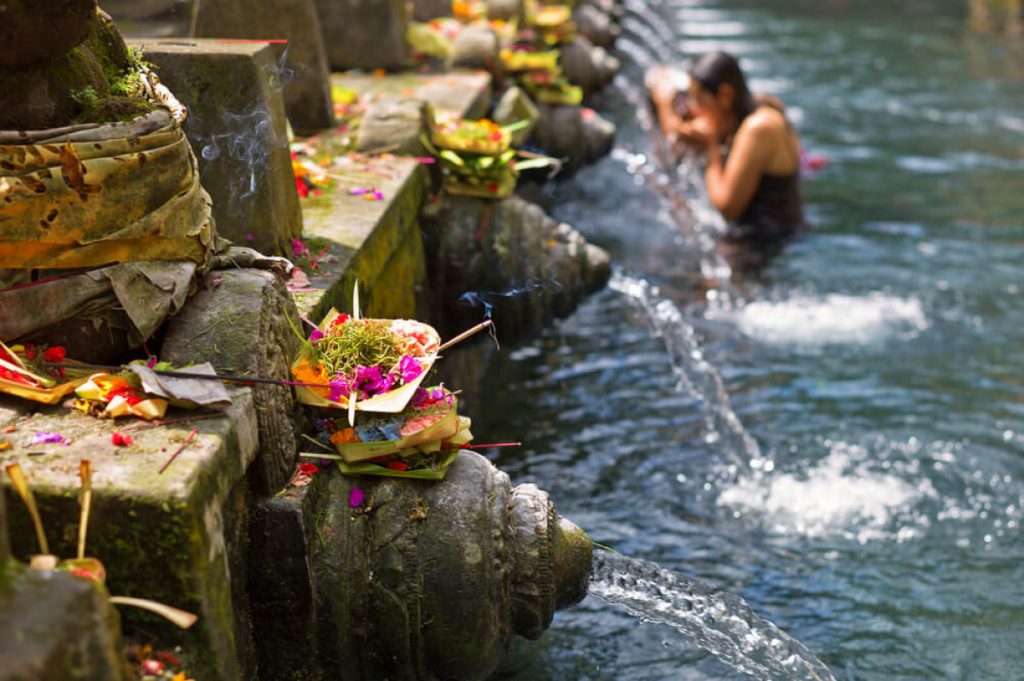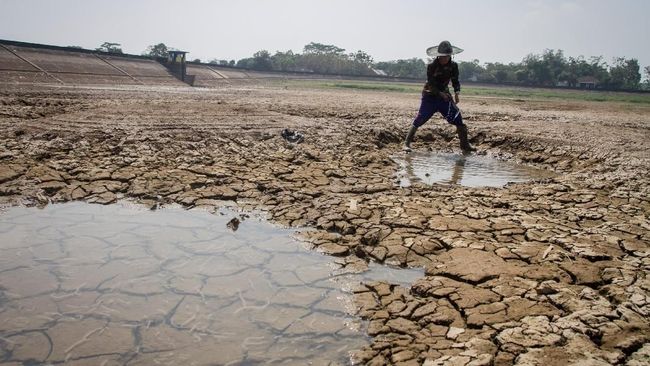Lately, there has been a decline in society’s respect for water. So that there are cases related to good water that occur in rivers, dams, reservoirs, floods, droughts, and pollution of these abundant mineral resources, even ironically, in various regions these mineral resources are very expensive to obtain. As we know that Indonesia as a country with such rich resources should not lack abundant mineral resources.
According to Prof. Sahid Teguh Widodo, M. Hum., Ph.D. (Chairman of PUI Javanologi UNS), he argues that water is the source of life and is a symbol of the birth of life. For him, Water is a cultural mantra that drives the birth of civilization. Civilization produces various forms of culture that are able to explain the values, knowledge, traditions, and world views of a collective or individual towards the water. Therefore, the value of the sacredness of water in Javanese culture needs to be viewed using an ethno-hydraulic approach.
Throughout human history, many forms of civilization have been found that are closely related to the existence of water. Even the human ability to manage water has been proven to give birth to a high civilization. In Surakarta, the birth and development of water civilization cannot be separated from the role of the Bengawan Solo (the longest river in Java) which flows from Wonogiri through Sukoharjo, Solo, Sragen, Ngawi, Blora to areas in East Java. No wonder the areas it passed became fertile and prosperous areas at that time. The development of civilization is also marked by the construction of agricultural irrigation, reservoirs, tourism facilities that develop a local culture in the form of art, traditional ceremonies, and others. The success of the Paku Buwana II government in overcoming water management and utilization could give birth to a peaceful civilization and had a major impact on all aspects of people’s lives at that time.

For the Javanese people, the existence of water is an absolute thing and cannot be separated. What’s more, the Javanese people are very attached to a culture rooted in agrarian traditions. This is what gave birth to myths and even folklore that is so sacred to the existence of water to maintain its sustainability. For example, the belief of the people around the Bengawan Solo river considers that the tuk (water source), trees, and large rocks are believed to be the place where ancestral spirits reside to protect and maintain water sources. Folklore that flows in the ears of the community around the Bengawan Solo river such as the origin of Kedung Bacin, Dlepih Kayangan, Kedung Pungal, and Langenharja Baths, the fairy tale of Jaka Tingkir, Kyai Rajamala Ship, Kedung Bridal, and others are still well maintained by the community. High respect for water is also shown by the Javanese people in naming people or places using the words tirta, banyu, warih, toya clear and other names.
Seeing Yourself Through the Water
- Since the beginning of life, for the Javanese people, water has always had a very important role. So, it is necessary for us to return to reflecting on the water.
1. Water naturally has a clean and clear form and nature. These two traits symbolize clarity of heart and fair honesty.
2. The spring flows continuously, even merging into one with the tributaries. meaning it symbolizes a strong union. When we live as a nation and state, we should work together, unite, empower, mad-sinamadan, and have cooperation to achieve common goals.
3. On hillsides, the flow of water is not always constant and always changing. It teaches us that as human beings, life is dynamic, we must be creative and innovative, flexible, adaptable, and not easily discouraged.
4. Water flows from a high place to a low place like a person’s style in leadership to always be responsible for his subordinates
5. Water teaches us about ethical manners like life that continues to flow. When human life is disturbed, for the sake of promoting the truth, it should be like a flood.
6. The flow of water holds a lot of dirt, but with a natural process, the dirt can become neutral again. The flow of water teaches us to be able to restrain ourselves even though we feel bitter, calm in all situations, and remain firm and objective in giving judgments.

Article Review “Maintaining the Sacred Value of Water in Javanese Culture: An Ethnohydraulic Approach”
Book of Adiluhung, Javanese Cultural Studies
Publisher: UNS Javanology – 2011



